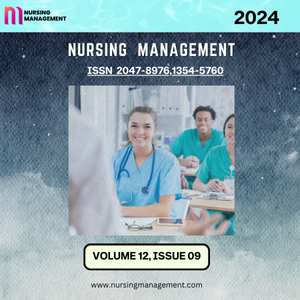Menu
Volume 12 Issue 2
Sleep Quality and Its Relationship to Anxiety and Hardiness in a Cohort of Frontline Italian Nurses during the First Wave of the COVID-19 Pandemic
Samuele Baldassini Rodriguez,Yari Bardacci,Khadija El Aoufy,Marco Bazzini,Christian Caruso,Gian Domenico Giusti,Andrea Mezzetti,Alberto Lucchini,Pasquale Iozzo,Andrea Guazzini,Camilla Elena Magi,Paolo Iovino,Yari Longobucco,Laura Rasero andStefano Bambi
1Emergency and Trauma Intensive Care Unit, Careggi University Hospital, 50134 Florence, Italy
2Department of Experimental and Clinical Medicine, University of Florence, 50134 Florence, Italy
3Emergency Medical System—AUSL Toscana Centro, 50122 Florence, Italy
4Medicine and Surgery Department, University of Perugia, 06100 Perugia, Italy
5Teaching and Quality Department, Perugia University Hospital, 06100 Perugia, Italy
6UOS Terapia Intensiva Generale e UOSD Emergenza Intraospedaliera e Trauma Team, Fondazione IRCCS San Gerardo dei Tintori, 20900 Monza, Italy
7Emergency Department, Azienda Ospedaliera Universitaria Policlinico Paolo Giaccone, 90100 Palermo, Italy
8Department of Education, Languages, Intercultural Studies, Literatures and Psychology, University of Florence, 50135 Florence, Italy
9Center for the Study of Complex Dynamics (CSDC), University of Florence, 50134 Florence, Italy
10Department of Health Sciences, University of Florence, 50134 Florence, Italy
Author to whom correspondence should be addressed.
Abstract
Introduction: The COVID-19 pandemic has had a considerable impact on the psychological and psychopathological status of the population and health care workers in terms of insomnia, anxiety, depression, and post-traumatic stress disorder. The primary aim of this study was to describe and evaluate the impact of the pandemic on insomnia levels of a cohort of Italian nurses, particularly those involved in the care of COVID-19 patients. The secondary aim was to identify the interaction between insomnia and hardiness, anxiety, and sleep disturbances. Materials and Methods: A descriptive–exploratory study was conducted using an online survey during the first wave of the COVID-19 pandemic (March to July 2020). The questionnaire consisted of multiple-choice, open-ended, closed, and semi-closed questions. The psychometric tools administered were the Dispositional Resilience Scale (DRS-15), the State–Trait Anxiety Inventory (STAI-Y), and the Insomnia Severity Index (ISI). Results: a cohort of 1167 nurses fully completed the questionnaire (86.2% of total respondents). The insomnia scale survey showed an increase in post-pandemic scores compared to those before the pandemic, implying that insomnia levels increased after the first pandemic wave. Insomnia scores were directly correlated with anxiety levels (r = 0.571; p ≤ 0.05) and inversely correlated with hardiness levels (r = −0.324; p < 0.001). Multivariate analysis revealed the following protective factors: not having worked in COVID-19 wards, high levels of hardiness (commitment), and the presence of high pre-pandemic insomnia disorder. The main risk factor for insomnia reported in the analysis was a high anxiety score. Discussion and Conclusion: Anxiety represented the main risk factor for insomnia severity in our sample, while hardiness was confirmed as a protective factor. Thus, it is necessary to design further studies to identify additional risk factors for poor sleep quality and to develop educational courses and strategies aimed at enhancing rest and sleep quality, especially for frontline nurses.
Keywords: insomnia; healthcare workers; healthcare professionals; nurses; hardiness; COVID-19; pandemic
Editorial Board
Editor-In-Chief
Christopher J. Hayes, University of California, BerkeleyCalifornia
Associate Editors
David P. Williams, Johns Hopkins University
Sophia L. Brooks, University of Sydney
Arjun K. Mehta, University of Cambridge
Isabella S. Johnson, University of Toronto
Eli T. Garcia, University of Oxford
Grace M. Lewis, Stanford University
Mason R. Chen, University of Melbourne

